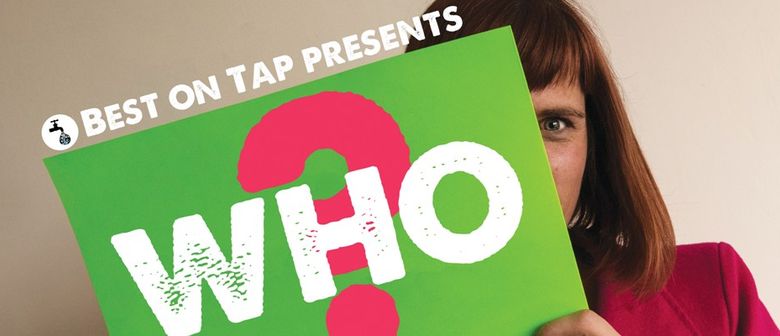Bethany Miller
The rest of the show is a mixture of improvised scenes, monologues and theatre sports, influenced by the cards. I initially have trouble connecting, probably because of my subconscious bias about improvised comedy. However I gradually engage and warm to the honesty of most portrayals. We witness couples that deal with mental illness or the proposition of an open relationship, and hear heartfelt monologues about people unsure what to do with their lives.
While the fun theatre sports activities don’t seem to say a great deal, they are welcome comic-relief after back-to-back scenes presenting tense conflict. For example, a speed-dating scene jolts us into high-tempo. One performer uses a buzzer on the other until they come up with a favourite sentence or scenario, a game called “New Offer”. It initially feels forced with the performers continually picking the third, and sometimes less interesting, option. However, the section loosens up as performers pick out whatever is immediately fitting and/or comical for their character.
The speed-dating is also the most stereotyped section, which is often hilarious but plays the risk of ridiculing the writers of the cards. My description is the first to come up and fortunately I have prepared myself for a comic caricature. It is funny and pleasurable to witness a satirical hippie “sun-ray” lady who is supposed to be me, connect by chance with another similarly “organic”, “open-minded” hippie. This fluke-encounter, both for the characters and the show itself, creates one of the most hilarious and memorable moments. However, I do not relate to my character portrayal whatsoever. Perhaps not surprisingly, my explanation of myself and how it gets interpreted are miles apart.
The last section of the show symmetrically reintroduces the first set of scenes, extending them with plot-twist resolutions. Bobbi Block, also the director, brings genius one-liners which dramatically alter the direction of a scene as her scene-partners accept the offers. For example, she resolves a developing conflict between neighbours of different generations by suddenly asking as the older up-tight neighbour “Do you have any pot?” Mary Little and Nicola Pauling revisit an open relationship proposal by the two partners completely switching their opposing stances, after the hesitant party has apparently been the one to act on it.
Darren Wood’s lighting warmly fills the wide stage which undergoes many combinations of the neutral BATS studio chairs and tables. The audience is partially lit, as are the wings, allowing the audience to feel involved as personal contributors and experience the stagecraft of actors making brief pre-scene plans. Lighting and sound both assist with transitions, however the live cello is even present as a character and live commentator with its cheeky expressive slides and riffs. Cellist Sebastian Morgan-Lynch initially welcomes on the cast with an energetic fanfare which buys my enthusiasm instantly, before musically impersonating the blurbs and adding comical subtext throughout.
I do not ultimately get to see a performance of myself, as the program and spoken introduction suggests. I suppose the task is impossible and certainly ambitious from the start. However, the string of conditions that distances me from what I watch generates a thought-provoking and intricate exploration in itself. I appreciate the complex makeup of scenes and stories, which are inspired by characters, inspired by blurbs, inspired by the audience’s quick, truthful and anonymous attempts at describing ourselves. It is fascinating to see ourselves reflected back at different angles, like a “hall of mirrors”. In my case the portrayal isn’t authentic enough to be confronting. However, witnessing a jumbled audience snapshot is entertaining and provocative, and makes its own statement about the confusion and complexity of identity. If you want to join this worthwhile identity mess, Who? is at BATS Theatre in the Heyday Dome until Friday 25 February






